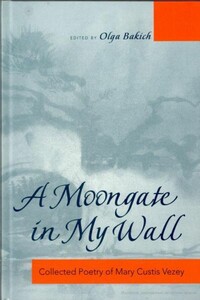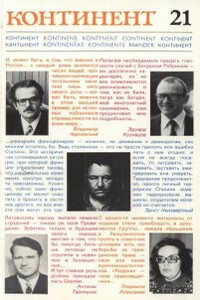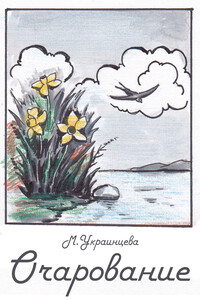A moon gate in my wall: собрание стихотворений - страница 2
Mary Custis Vezey, or Mariia Genrikhovna Vizi (as she was known in Russian), was born on 17 January 1904 in New York. Her father, Henry Custis Vezey (1873–1939) was an American. His ancestors moved from England to the USA at the beginning of the 17th century and became related to the American family Custis, to the first American president George Washington, and to General Lee, the leader of the Confederates in the American Civil War. As a young man, Henry Custis Vezey went to Europe, studied languages, and worked in Paris. At the end of the 19th or in the early 20th century, he worked at the American Embassy in St. Petersburg, becoming a Vice-Consul in 1914. During the First World War, he edited and published an English-language newspaper Russian Daily News, and later a bulletin Russkih News Letter (Translations from Russian Newspapers)[4]. Genrikh Genrikhovich Vizi, as Russians called him, came to speak perfect Russian. He married Mariia Platonovna Travlinskaia (1974–1950), granddaughter of an archpriest of the lsaakievskii Cathedral, M.F. Raevskii, and they had two children: Vladimir (12 July 1902) and Mary (17 January 1904).
Mary Vezey was four weeks old, when the family returned to Russia from a visit to New York. In St. Petersburg, Vladimir and Mary grew up bilingual, if not trilingual: Russian, English, and French. Her French was such that she wrote poems in French as well, but they were not preserved, as she modestly felt that they "should be first shown to a person who knows the language properly, not the way I do."[5] Her Russian childhood was happy: a good school, theatres, ballets, concerts, vacations at Kuokkala on the shores of the Gulf of Finland, Finland then being a part of the Russian empire. Known as "the Northern Riviera," Kuokkala was a resort popular among Russian artistic and literary circles, and several prominent writers and painters had cottages there.
After the 1917 Revolution in Russia, Henry Vezey was transferred to the American Consulate in Harbin. The family thus settled in China, but Harbin, a major railway junction of the Chinese Eastern Railway built by Russia in 1898–1903, was in many respects a Russian city. By 1917, the junction had grown into a large city of some 70 thousand Russian and Chinese inhabitants. In the early 1920s, the population rapidly increased with the arrival of some 200 thousand Russian emigres. For some time after the Russian Revolution, the Chinese Eastern Railway retained its old, predominantly Russian administration, and Harbin had Russian churches, clubs, theatres, schools, and several post-secondary institutions. In spite of the drastic political changes of the 1920s and 1930s, the diminishing population of Harbin Russians succeeded in maintaining a semblance of Russian pre-revolutionary life until the end of the Second World War.
In the early 1920s, Henry Vezey became editor-publisher of the Harbin English newspaper Russian Daily News, soon renamed Harbin Daily News, registered at the American Consulate-General in Harbin. The newspaper had supplements in Russian. The forced move from St. Petersburg (renamed Petrograd in 1914) across Russia on the brink of the devastating Civil War to distant and unknown China was a great change for his fourteen-year-old daughter. In a poem written in 1921, she addressed the poet A.S. Pushkin, saying that had "the great Russian genius" been alive, "your heart would have constricted with a terrible pain,/You would have burned with pain and shame/For that Russia, which always / Seemed holy" (poem 268).
She started writing poetry at the age of six. Her first efforts were in Russian, and a teacher, impressed by a poem submitted in class, began her encouraging comment with the words "To the Future Poet."




